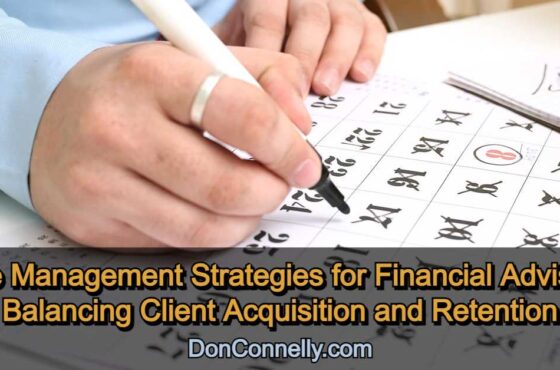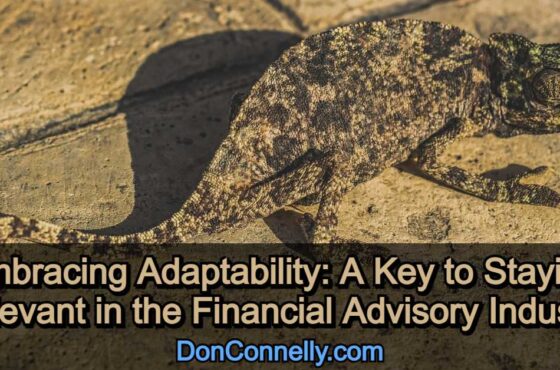Beyond Compliance: Cultivating a Culture of Ethical Decision-Making for Financial Advisors
 It’s taken nearly two decades for the financial services industry to overcome the massive trust deficit that sprung from the 2008 Financial Crisis. The good news is financial advisors are once again viewed as the most trusted source of financial advice, with nearly two-thirds of retail investors expressing a high level of trust. The bad news is that it takes just one ethical lapse, intentional or not, to erase that hard-earned goodwill.
It’s taken nearly two decades for the financial services industry to overcome the massive trust deficit that sprung from the 2008 Financial Crisis. The good news is financial advisors are once again viewed as the most trusted source of financial advice, with nearly two-thirds of retail investors expressing a high level of trust. The bad news is that it takes just one ethical lapse, intentional or not, to erase that hard-earned goodwill.
However, as highly effective advisors know, clients don’t simply hand over their trust; advisors must earn it. Ethical conduct is one of the most critical factors clients consider in building trust with their advisors. Regulatory compliance may establish a baseline and guardrails to keep you on the straight and narrow path of ethical practices. However, ethical decision-making transcends the checklists and rules, aiming to prioritize client interests above all else.
In this post, we’ll explore actionable strategies for cultivating a culture of ethics in financial advisory practices and demonstrate how this approach strengthens trust, enhances client satisfaction, and builds long-term success.
Why ethical culture matters
Trust is the cornerstone of every financial advisory relationship. Ethical lapses, such as mismanagement, conflicts of interest, or lack of transparency, can irreparably damage this trust. Beyond client relationships, a strong ethical culture fortifies a firm’s reputation, boosts employee morale, and promotes sustainable growth.
Today’s clients demand more than just financial expertise; they seek transparent, accountable advisors who align with their values. Advisors who embrace ethical decision-making can differentiate themselves in an increasingly competitive market. An ethical culture doesn’t just benefit clients; it’s a strategic asset that fosters loyalty, retention, and long-term success.
Key components of an ethical culture
#1. Establishing core ethical values
The foundation of an ethical culture begins with clearly defined core values. These principles should align with regulatory guidelines while centering on client interests. Examples of core ethical values include integrity, transparency, and client-first decision-making.
For instance, a firm prioritizing client goals over commissions ensures its advisors will recommend products or strategies best suited to the client’s needs. A written code of ethics, reinforced by leadership, provides a consistent framework for decision-making and sets the tone for the entire organization.
#2. Ethics training programs
Structured ethics training is essential to embed ethical decision-making into daily practice. These programs should go beyond compliance checklists, focusing on real-world scenarios that advisors might face, such as managing conflicts of interest or handling confidential information.
Role-playing exercises, for example, can simulate situations where advisors must choose between ethical principles and short-term gains. Additionally, incorporating discussions on ethics into team meetings keeps these principles in mind and fosters collective accountability.
#3. Leadership as ethical role models
Leaders are pivotal in setting the tone for ethical behavior within a firm. When leaders prioritize transparency, accountability, and ethical decision-making, it creates a ripple effect throughout the organization.
Consider a leader who openly acknowledges and rectifies mistakes, demonstrating accountability in action. By modeling ethical behavior, leaders inspire their teams to follow suit, creating an environment where ethics are valued and practiced consistently.
#4. Creating open communication channels
An ethical culture thrives on open dialogue. Financial advisors must feel comfortable discussing ethical concerns without fear of judgment or retaliation, so creating safe spaces for these discussions is essential.
Tools like anonymous suggestion boxes, ethics hotlines, or designated ethics committees can facilitate open communication. Regularly scheduled forums for advisors to voice concerns or seek guidance further reinforce the importance of ethics within the firm.
#5. Recognizing and rewarding ethical behavior
Positive reinforcement is a powerful motivator. Recognizing and rewarding ethical behavior signals that integrity is valued just as much as performance metrics.
Firms can implement peer-nominated awards for ethical decision-making or track metrics that reflect ethical practices, such as the percentage of clients retained due to transparency initiatives. Publicly celebrating these achievements reinforces their importance and encourages others to emulate similar behavior.
The role of regular ethical audits
Regular ethical audits help ensure that a firm’s practices align with its stated principles. These audits can evaluate potential conflicts of interest, transparency in client communications, and adherence to fiduciary responsibilities.
For example, an ethical audit might review whether advisors consistently disclose fees and potential conflicts to clients. By proactively identifying and addressing gaps, firms can demonstrate their commitment to continuous improvement and integrity.
Bottom line
Moving beyond compliance to cultivate a culture of ethical decision-making isn’t just the right thing to do—it’s a strategic advantage. Advisors who embrace ethics as a cornerstone of their practice build stronger relationships, enhance client satisfaction, and ensure long-term success.
Financial advisors, it’s time to take the first step. Reflect on your firm’s current ethical practices and identify areas for improvement. Start a conversation with your team or implement one of the strategies outlined in this post. By fostering a culture of integrity, you’ll meet the expectations of today’s clients and set the standard for the industry’s future.
Watch this 3-minute video to learn how our customized coaching program specifically designed for Financial Professionals will help you increase your assets under management (AUM) immediately!
NOTE: One of the areas you and your team will focus on during this training is developing a winning work ethic.
See coaching details and enroll today!
Delivered individually or in small groups, this program is designed specifically for Financial Professionals, including Financial Advisors, External & Internal Sales Consultants, Product or Relationship Managers, and inspires passion and confidence in the enrolled sales professionals to hone the core skills and competencies needed to grow their business in a predictable and sustainable manner. Select your format and enroll now!



